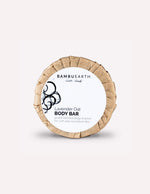
IN THIS ARTICLE
The benefits of vegetarian and vegan lifestyles are becoming more and more prominent in the research being done around the world. The old mindset of needing meat for nutrition, proper diet, and nutrient intake is no longer necessary. With new information, we see that eating a plant-based diet has all the same benefits plus more...
...not only for your body but for the world around you as well!
If you’re thinking of transitioning to a plant-based diet, read below for some of the top benefits to help you along your way.
Types of Plant-Based Diets

People choose plant foods for all different kinds of reasons. For some people, it's all about the ethics of not wanting to consume food that comes from animals. For others, it's about choosing a plant-based diet for health reasons or because their body feels better when they steer clear of meat consumption. There is no one size fits all when it comes to dietary choices. Whether you want to be fully plant-based, fall more in line with vegetarian diets, or just want to welcome more healthy habits into your eating, here are the differences between plant-based, vegetarian and vegan diets.
- Flexitarian: For those who choose a flexitarian diet, this usually means that you generally eat a vegetarian diet but that you also occasionally eat meat or fish or animal products. Sometimes people adopt this kind of diet to reduce their carbon footprint.
- Pescatarian: For those who choose a pescatarian diet, this usually means that you will eat fish or shellfish but avoid other kinds of meat.
- Vegetarian: For those who choose a vegetarian diet, this usually means that you don't eat meat, fish, shellfish, or products that contribute to animal slaughter. Some vegetarians still consume dairy.
- Vegan: For those who are on a vegan diet this usually means that you don't consume any kind of animal product. This could be for environmental, ethical, or health reasons.
- Raw Vegan: For those who choose a raw vegan diet, this usually means that you blend veganism with raw foodism. A raw vegan diet is generally based on eating foods that are free from animal products, raw, and unprocessed.
What are the Health Benefits of Plant-Based Diet Lifestyles?

Whether cutting back on processed foods and meat or just going all out when it comes to your plant-based diet, there are tons of perks to be had. Healthcare practitioners and nutritionists seem to have plenty of good things to say about the benefits that a plant-based diet offers. From lowering your blood sugar to helping maintain a healthy immune system and boosting your intake of essential nutrients, here are the many health benefits you can get from swapping your processed food for healthy plant foods.
Improved Digestion
Meat can be hard for the human body to digest and can lead to many gastric issues. When eating a natural, plant-based diet, consumers may feel the results of improved digestion. One of the main reasons for improved digestion is due to the decreased about of harmful synthetic chemicals entering the body and lowered buildup of toxins.
Lowered Blood Pressure and Blood Sugar
A healthy plant-based diet reduces the risk of high blood pressure. High blood pressure can be a major playing factor in coronary heart disease, type 2 diabetes, and a heightened stroke risk too. Close to 40 different studies have shown that those who followed a more plant-based diet had lower blood pressure results in comparison to omnivores. Cutting out animal foods and sticking to a plant-based diet may also keep your blood sugar stable or on the low end of the spectrum. Patient clinical trials showed that almost half the participants were able to reduce their dosage of blood lowering medication after trying a vegan diet. For those looking to stabilize blood sugar levels, a following a plant based diet could help.
Boosts Immune System
It is no surprise that eating loads of nutrient-filled fruits and veggies set your body up for optimal health. Eating these superfoods with each meal will result in a strong immune system and lowered risk of health problems and sickness. As a plant-based meal relies on more vegetables, legumes, and grains, you get all the nutrients involved in that stash too. Studies have found that a healthy diet made up of plant-based food can be rich in antioxidants, fiber, potassium, magnesium, folate, and a range of essential vitamins. Plant foods reduce inflammation to which also cuts down on our risk of inflammatory diseases.
Reduce Risk of Heart Disease
As a plant-based diet means less meat and meat has more saturated fat, it stands to reason that only eating plants will cut down on cardiovascular diseases too. The Journal of the American Heart Association found that plant-based dietary patterns cut the risk of developing heart disease by 16%.
Turning to plant protein not only reducing the risk of heart disease but numerous other threatening illnesses too such as helping with cancer prevention. Along with these benefits, there is research proving that cutting out meat equals a longer lifespan!
Eating a plant-based diet does not need to be boring but instead exciting with the countless dish options for mouth-watering meals! Try incorporating beans, grains, and rice into a dish to make it more filling. Some popular dishes on the menus right now are colorful Buddha bowls, hearty vegan soups, and twists on the classic burger patty!
What other benefits come from plant-based eating?

Environmentally Friendly
One of the greatest benefits of a plant-based diet is the lowered ecological footprint. Meat production uses many resources and creates a high carbon and water footprint. Not to mention deforestation due to the creation of land space for the animals. By eating plant-based, you would not only save countless animals but would also be cutting down your individual ecological footprint by more than half.
Ethical
Eating a plant-based means absolutely no harm is caused to any animals on your behalf. Meat coming from mass-produced factories involves harsh acts of animal cruelty. Not to mention, the meat is also of lower quality, being filled with harmful synthetic chemicals such as growth hormones. These growth hormones can be associated with carcinogenic properties.
Plant-Based Foods to Work Into Your Diet

Shifting your eating habits to embrace a more whole food plant-based diet is never a bad idea. Like any diet, it's essential to try and balance out your diet and to make sure that you are hitting all the essential food groups. A good diet is making sure you get enough protein, vegetables, fruits, leafy mixed greens, grains, calcium, and healthy fats too. It also means trying to limit sugary desserts, highly processed foods, red meat, processed meat, and other major diet pitfalls. For those who are thinking about the body's long term health and wanting to adopt healthy habits when it comes to their diet, here are all the plant-based foods you need in your diet.
Fruits
Fruits are an essential part of any diet. Not only are fruits essential for filling us up on our vitamins and minerals but they also help bring a boost of antioxidants, potassium, folate, and magnesium to the body too. All fruits have some benefits so you can really pick your piece depending on the taste you love. Apples, oranges, berries, stone fruits, and melons are all consistently proven to be awesome for us. If you decide to consume fruit juices make sure that they are as natural as can be as some will come with added sugars.
Vegetables
Another starring role for those whose diet consists of mostly plants - vegetables are one of the favorite whole foods out there. Some of the best vegetables to bring into your plant-based diet includes leafy greens like spinach and broccoli, sweet potatoes with their high vitamin count, asparagus, peppers, beta-carotene rich carrots, and plenty of immune-boosting garlic and ginger too.
Nuts and Seeds
Walnuts, sunflower seeds, flax, almonds, chia seeds - nuts and seeds are all an essential part of any good plant food diet. From natural peanut butter to almond butter, they are a great source of protein and natural fats and they are also full of vitamin E, magnesium, zinc, and iron too. Seeds are also rich in essential omega 3 acids, and share many nutritional benefits with fish making them a great alternative for those avoiding animal products. Vegan cheeses are also commonly made out of nuts and seeds too.
Grains
Wholegrains are another essential part of some plant-based meals as they give us a ton of nutrients. From whole grain brown rice to quinoa, oat, couscous, and bulgar wheat - these grains are glorious as they provide us with those complex carbohydrates and starches that give us energy. They also are low in fat and high in fiber and come with a wide range of vitamins and minerals too.
Legumes
Legumes are an important part of the plant-based lifestyle as they are rich in iron and packed with plant protein too. Beans, peas, and lentils are awesome sources of legume-based fiber along with having the added benefits of being rich in folate, zinc, antioxidants, and are a form of carbohydrate that can be slowly digested meaning you can avoid that carb coma.
Healthy fats
From tofu to avocado, there are plenty of healthy fats out there for those who eat plant-based foods. While diet culture may have led to the thought process that fats are bad as they can lead to excess weight gain. But fats are actually an essential part of a healthy balanced diet. They help to keep cells healthy, promote good bowel management and it can even help those looking to lose weight as we need fat in order to burn fat. Good sources of vegan ats include almonds, chia, seeds, cacao, olive oil, and tahini.
Plant-based milk
For those vegans and dietary choices that skip out when it comes to dairy foods, there are plant-based sources of calcium out there. There are tons of choices now when it comes to plant-based milk alternatives - oat, soy, almond, hemp - each brings its own benefits to the party. For those vegans wanting to up their intake of protein, you may be best turning to soy and hemp. If you want to boost your intake of B12 then go for plant-based milk that is fortified.
What are your thoughts on plant proteins and plant compounds? Do you eat plants only or are you more about cutting back on meat? Share your plant-based protein tips and let us know what a plant-based diet improves for you over at our VIP Sozy community.










































































 TOP
TOP



